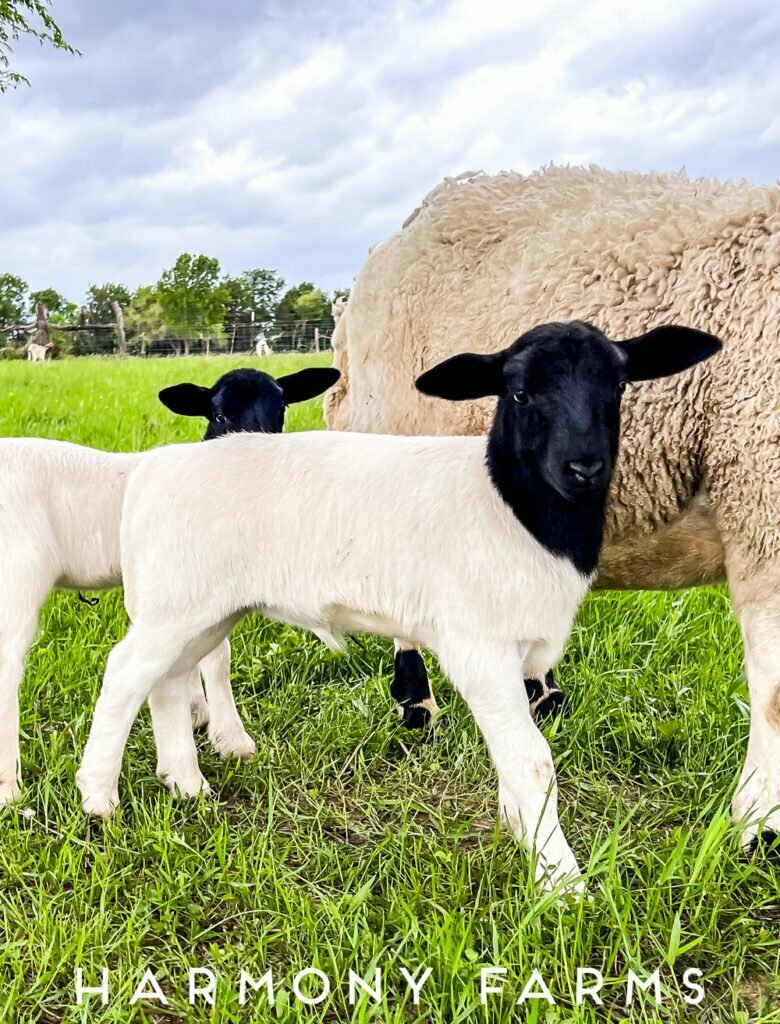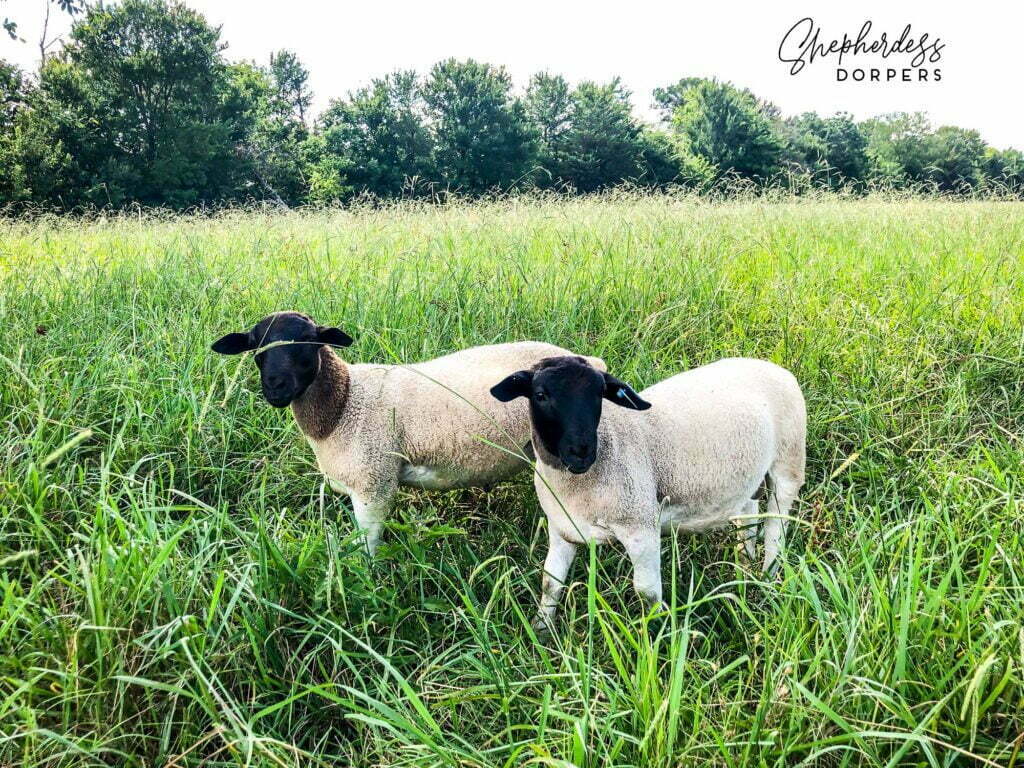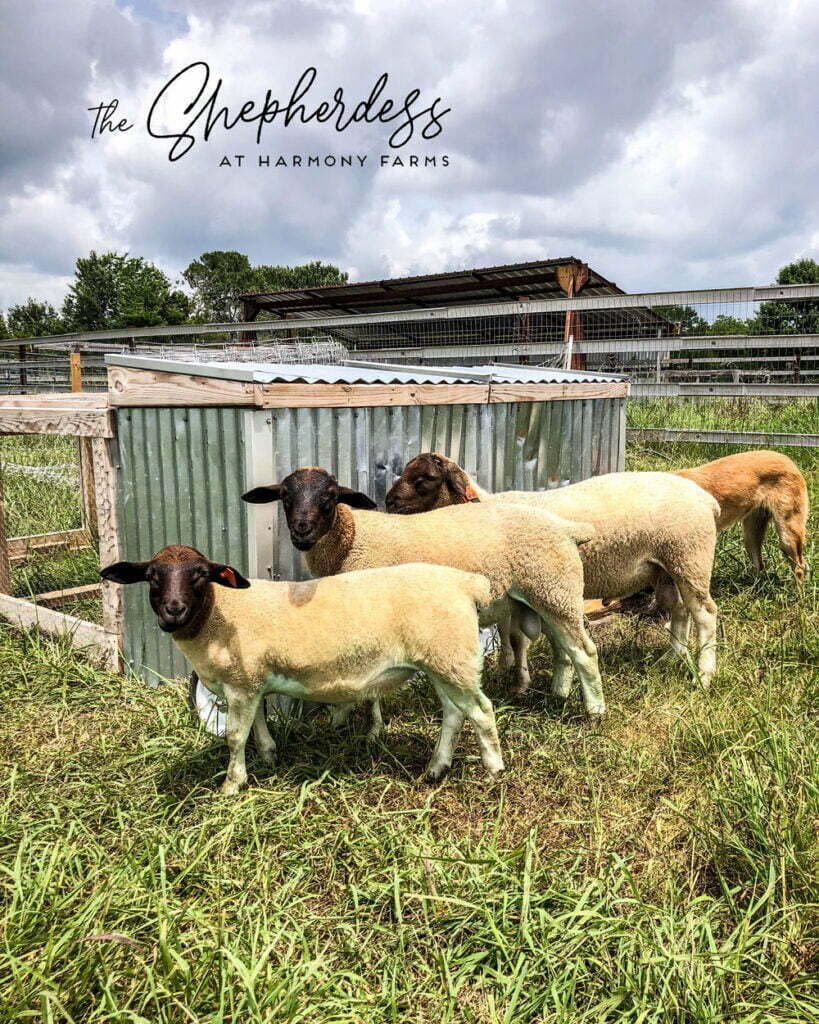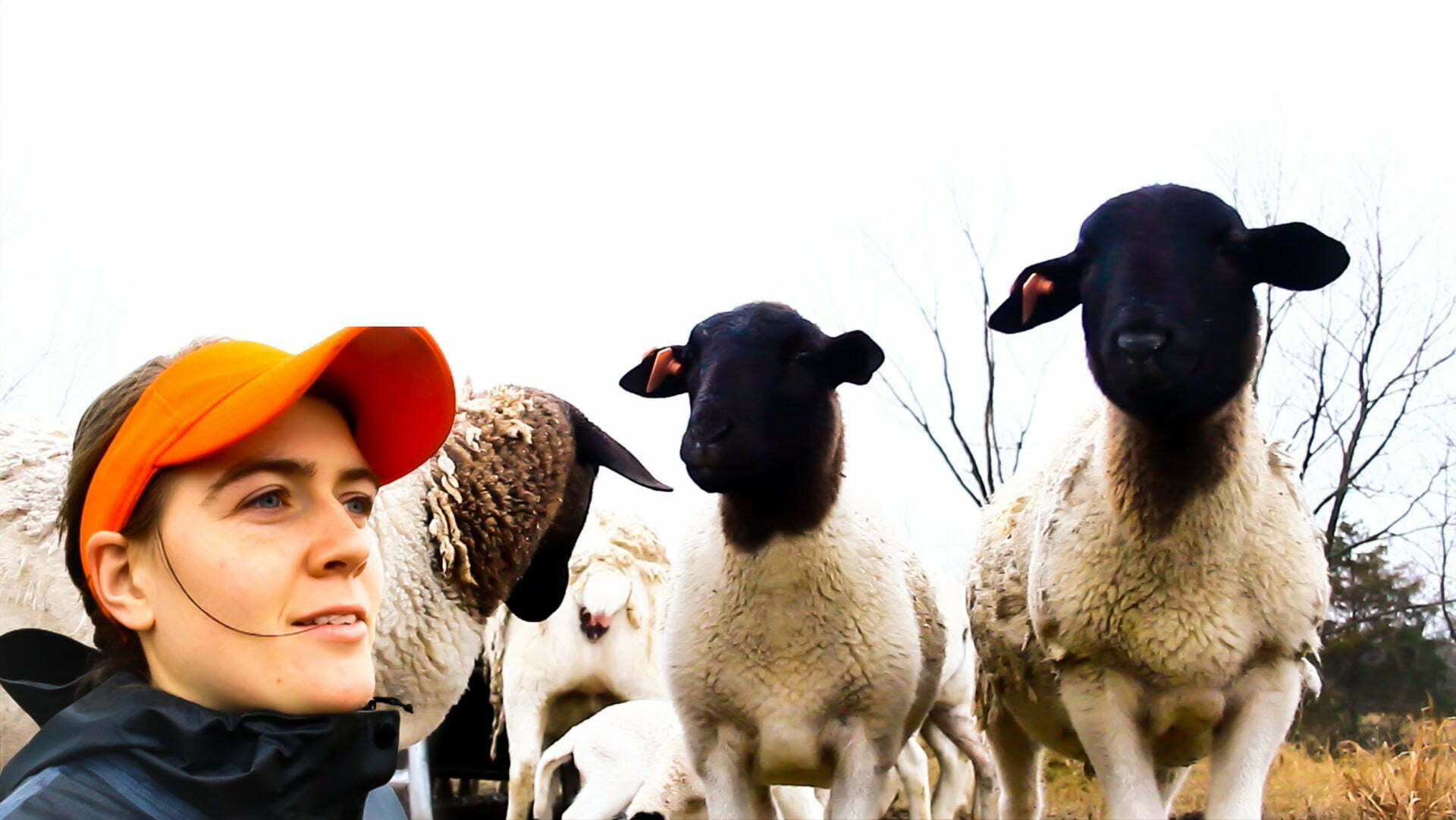Are registered Sheep worth the money?
I am going to give you the answer I received when I asked this same question 3 years ago.
I am going to tell you why I do not recommend beginners start a flock with registered stock.
I am going to add some pragmatism to the discussion by explaining why I do have registered animals in my flock.
First a definition of terms: Registered vs. Commercial Sheep
In the Dorper world, a Registered sheep is one that has a paper trail all the way back to South Africa, where the breed originated. Both the ewe an the ram must be pure Dorper and have the same paper trail back to South Africa. A registered sheep comes with papers from the American Dorper Sheep Breeder’s Society and the owner of the sheep is a member of the society. Registered sheep are often raised as show animals for 4H, FFA, etc, with the meat market being a secondary consideration.
A Commercial sheep is a sheep that is not registered and has no papers. Commercial sheep are raised almost exclusively for the food supply chain. Quality commercial operations that sell breeding stock are doing so to other farmers with the same intent: to raise animals for meat.
“Should I start my flock with registered sheep?”
When I first jumped into livestock, my goal was to raise an animal that produced good meat on grass.
One of the first questions I asked my friend Karl Ebel was: “Should I start with a registered sheep?” (I was actually asking about cows at that time, but the advice holds true no matter the animal)
The experienced cattleman shook his head and said: “You can’t eat papers.”
That is pretty much the long and short of it.
If you are raising animals exclusively for the meat market, papers are almost entirely unnecessary. As a meat producer, your operation will be performance based and not papers base.
2 Reasons I do not recommend beginners buy registered sheep.
#1: You could get caught in a money trap.
Registered animals will be more expensive than commercial animals, but they won’t always be better.
#2: As a beginner, you are probably going to face some losses upfront. It will feel a lot better to lose an animal that cost a few hundred dollars rather than $1000 or more.
What is a good animal?
Before you buy a papered animal, you want to make sure you know what a good animal looks like. Research productive body types. Research the best selling cuts in the meat case and make sure the sheep you are looking at has got the goods.
Leg of lamb, for example: Look for chunky thighs.
Lamb chops, and lamb loin: I want to make sure the sheep I am raising has a long, thick torso.
When it comes to breeding, I want: fertility, sound udders, good maternal instinct, and the ability to lamb on her own… for the most part.
When it comes to feed inputs, for me personally, I want a sheep that can thrive on pasture only, so long as there is enough of that pasture in front of them.
I can almost guarantee you that if your sheep has these qualities they will be profitable with or without papers.
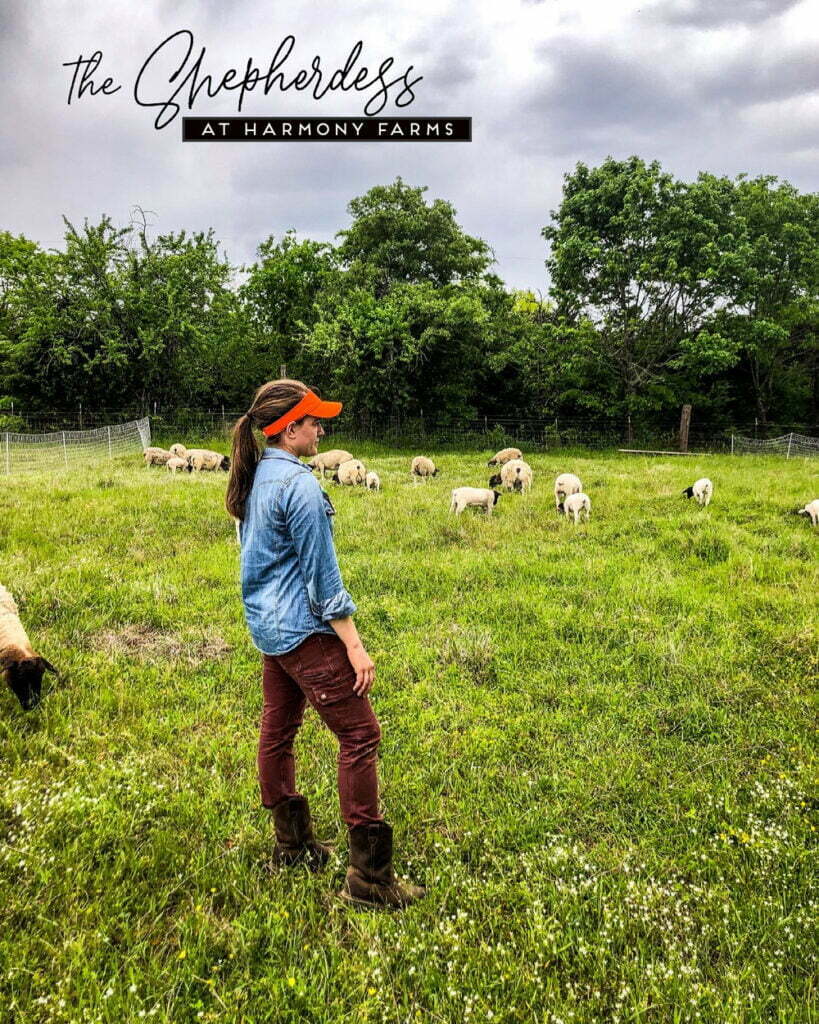
3 Cons to Buying a Registered Sheep:
Most registered sheep are being bred for the show ring. The only thing they select for in the show ring is a pretty face and prize-winning body… And that body type that is actually biologically counter-productive. Show ring animals are notorious for birthing complications.
Most registered sheep rely on year round grain inputs to maintain body condition. Unless you buy from a pasture base registered operation, it’s a gamble as to whether they can maintain body condition and support lambs on pasture only.
Most registered sheep are not being culled like they should. It is easier to make excuses for an expensive, papered animal. Many commercial flocks will send hoof issues, mastitis, birth complications, etc to freezer camp. It is not so easy to do that with an animal you paid $1500 for. Or at least I have to be honest and say that it wouldn’t be for me!
The Pros of Registered Sheep:
MONEY.
Right now, a registered Dorper sheep brings 2-3 times the price of a commercial Dorper sheep.
People looking for registered animals are often buying for the show ring. Show animals bring more than meat animals.
Why I added Registered Sheep to my Commercial Flock:
MONEY.
I do have the marketing and demand in place for breeding stock. I realized I could really boost revenues by adding a small registered operation alongside my commercial ewes. And it panned well. In 2022 I sold my quality commercial rams for $400 and my registered rams for $1000.
My goal is to earn a net profit minimum of $1000 per acre here at the farm. With the price I am pulling on my registered stock, I would only need about 30 ewes to do that.
All that said, I am still running primarily commercial sheep. I am primarily in the food producing business and not the show sheep business… though I don’t have any problem diversifying to make some good money off the latter.
And yes, you can find the best of both worlds… you can find a Registered sheep with all the right qualities… but it starts with knowing what a good sheep looks like and going from there!
“Know ye that the LORD he is God: It is he that hath made us, and not we ourselves; We are his people, and the sheep of his pasture.” Psalm 100:3
